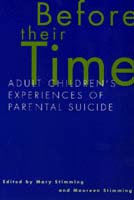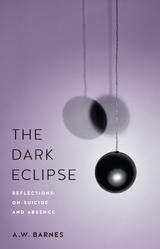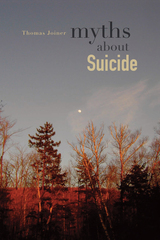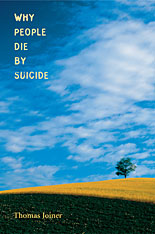
Each of these survivors faces the common difficulties associated with losing a loved one by suicide. They also experience difficulties specific to their status as both adult and child. Topics such as the impact of the parent's suicide on adult children's personal and professional choices, marriages and parenting, sibling and surviving parent relationships are explored with sensitivity and insight. Various coping skills, including humor, are described.
The writers describe feelings of regret and responsibility related to their parent's suicide. They express concern about other family members' vulnerability to suicide. They speak openly about the fears and stresses they face and how they cope with them.
The authors ranged in age from nineteen to thirty-six at the time of the parent's death. Between one and twenty-five years have passed since that tragedy.
In addition to the first-person narratives, the book includes a resource section with a national listing of suicide survivor support groups; an overview of existing research on survivors of suicide by John L. McIntosh, past president of the American Association of Suicidology; and an essay on elderly suicide by David C. Clark, secretary-general, International Association for Suicide, and editor-in-chief of Crisis. The book is introduced with a Foreword by Rev. Charles Rubey, founder and director of Loving Outreach to Survivors of Suicide.

Published by Bucknell University Press. Distributed worldwide by Rutgers University Press.

Around the world, more than a million people die by suicide each year. Yet many of us know very little about a tragedy that may strike our own loved ones—and much of what we think we know is wrong. This clear and powerful book dismantles myth after myth to bring compassionate and accurate understanding of a massive international killer.
Drawing on a fascinating array of clinical cases, media reports, literary works, and scientific studies, Thomas Joiner demolishes both moralistic and psychotherapeutic clichés. He shows that suicide is not easy, cowardly, vengeful, or selfish. It is not a manifestation of "suppressed rage" or a side effect of medication. Threats of suicide, far from being idle, are often followed by serious attempts. People who are prevented once from killing themselves will not necessarily try again.
The risk for suicide, Joiner argues, is partly genetic and is influenced by often agonizing mental disorders. Vulnerability to suicide may be anticipated and treated. Most important, suicide can be prevented.
An eminent expert whose own father's death by suicide changed his life, Joiner is relentless in his pursuit of the truth about suicide and deeply sympathetic to such tragic waste of life and the pain it causes those left behind.

Colombian-born Santiago Martinez starts his adult life as a young gay writer living in Spain. Years later, as a university professor in New York City, Santiago is called back to his native Colombia upon the suicide of his sister. There he learns some shocking secrets about his childhood and adolescence and comes to the realization that cherished memories of the past are only illusion.

In the wake of a suicide, the most troubling questions are invariably the most difficult to answer: How could we have known? What could we have done? And always, unremittingly: Why? Written by a clinical psychologist whose own life has been touched by suicide, this book offers the clearest account ever given of why some people choose to die.
Drawing on extensive clinical and epidemiological evidence, as well as personal experience, Thomas Joiner brings a comprehensive understanding to seemingly incomprehensible behavior. Among the many people who have considered, attempted, or died by suicide, he finds three factors that mark those most at risk of death: the feeling of being a burden on loved ones; the sense of isolation; and, chillingly, the learned ability to hurt oneself. Joiner tests his theory against diverse facts taken from clinical anecdotes, history, literature, popular culture, anthropology, epidemiology, genetics, and neurobiology--facts about suicide rates among men and women; white and African-American men; anorexics, athletes, prostitutes, and physicians; members of cults, sports fans, and citizens of nations in crisis.
The result is the most coherent and persuasive explanation ever given of why and how people overcome life's strongest instinct, self-preservation. Joiner's is a work that makes sense of the bewildering array of statistics and stories surrounding suicidal behavior; at the same time, it offers insight, guidance, and essential information to clinicians, scientists, and health practitioners, and to anyone whose life has been affected by suicide.
READERS
Browse our collection.
PUBLISHERS
See BiblioVault's publisher services.
STUDENT SERVICES
Files for college accessibility offices.
UChicago Accessibility Resources
home | accessibility | search | about | contact us
BiblioVault ® 2001 - 2024
The University of Chicago Press









